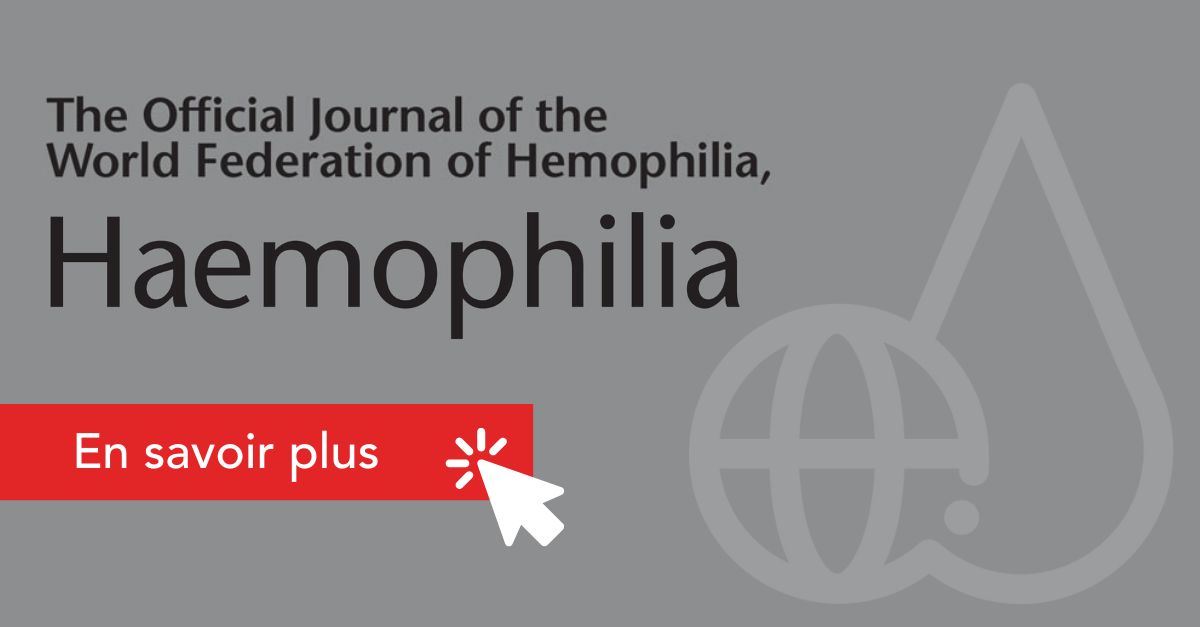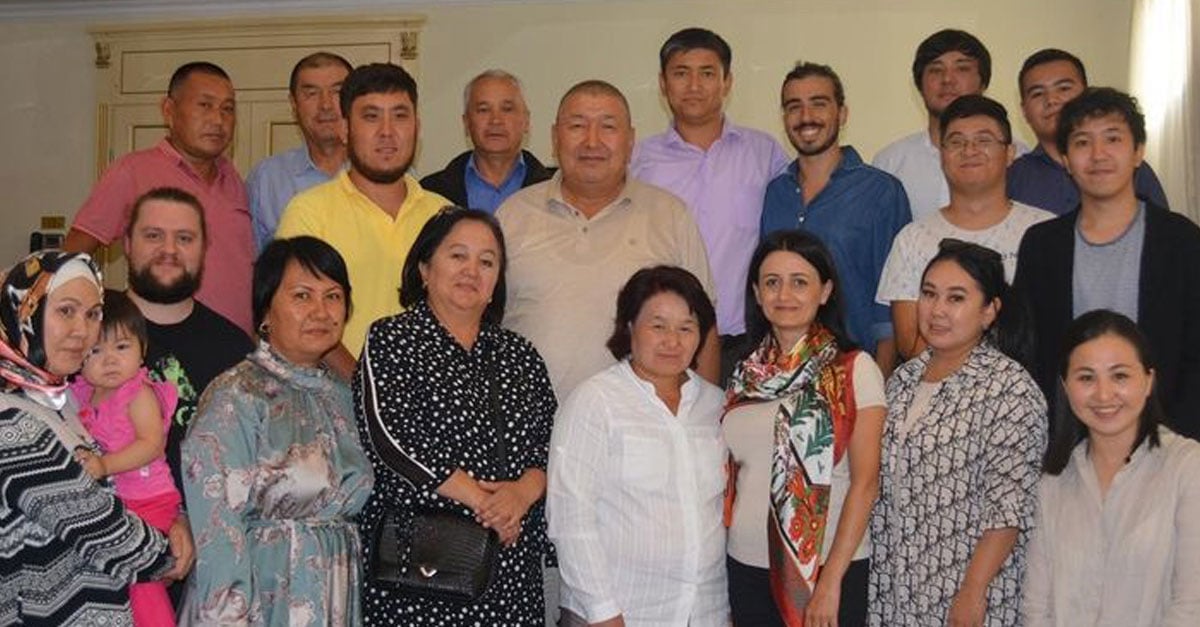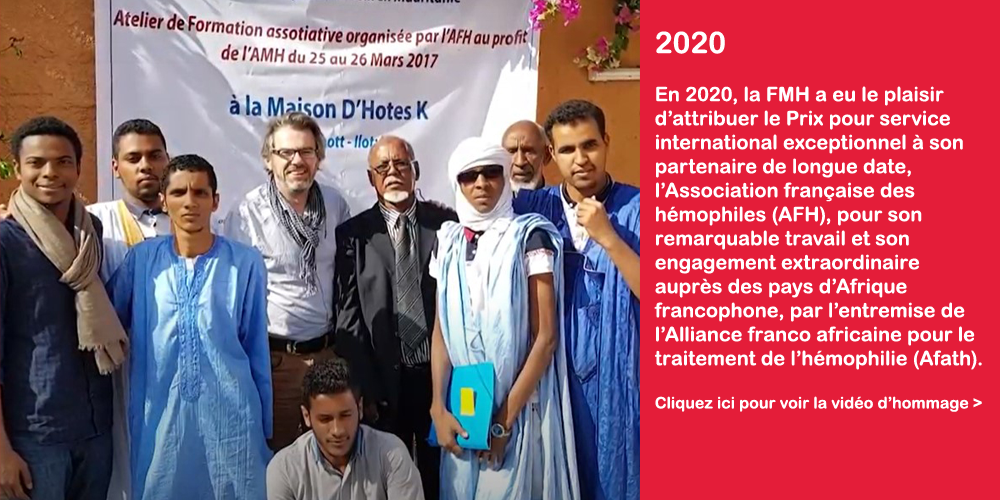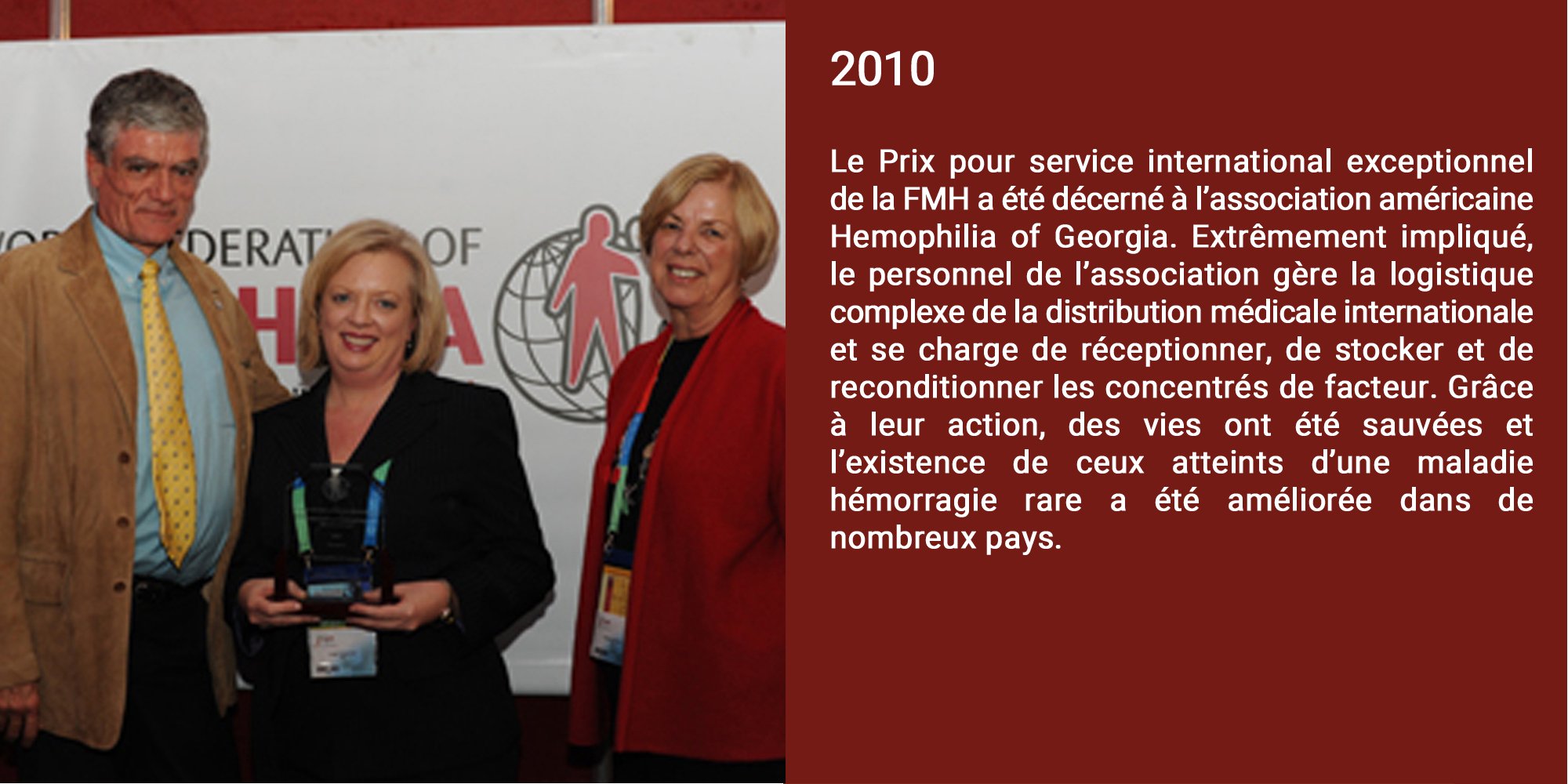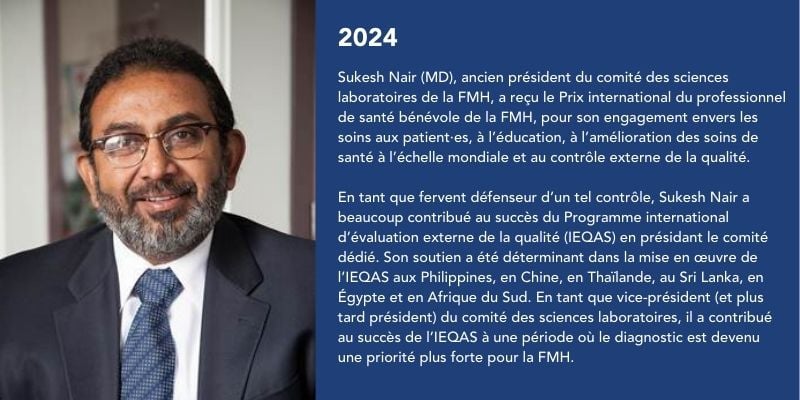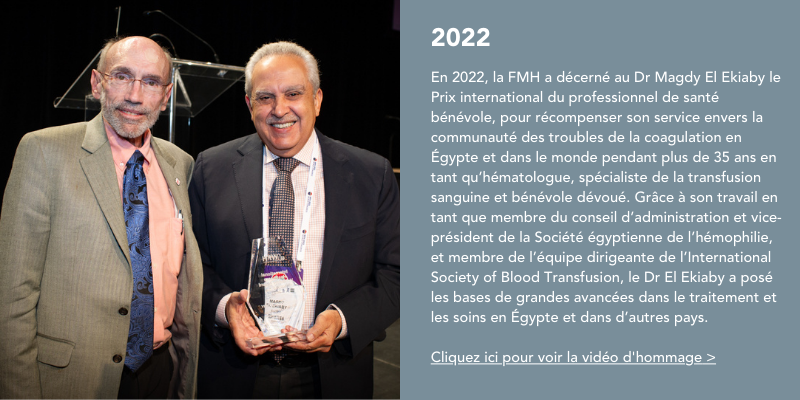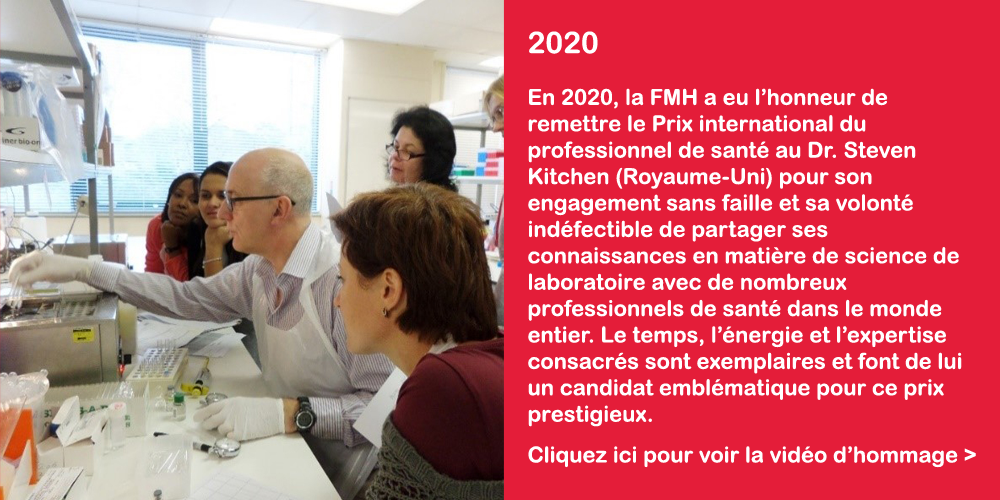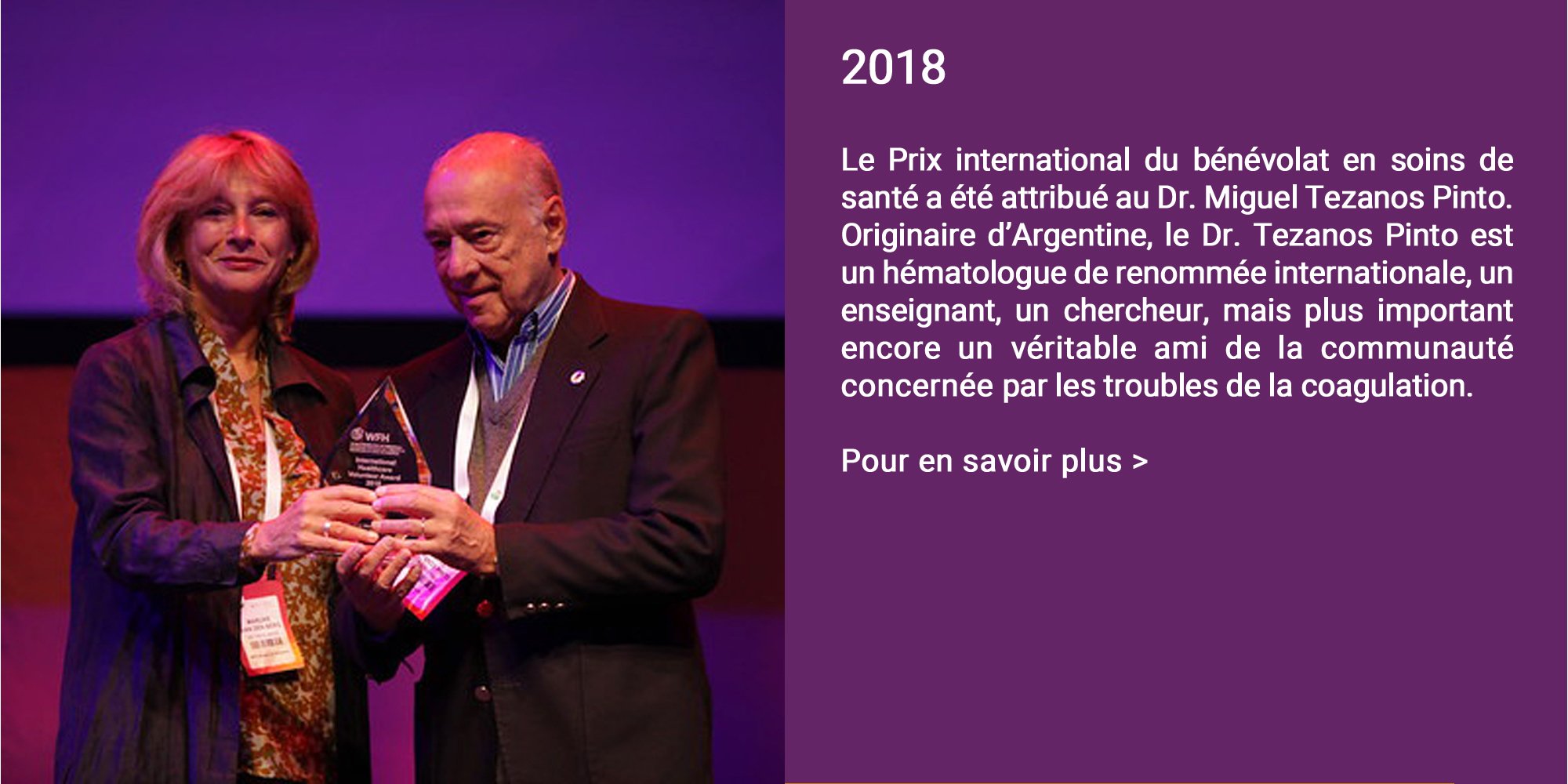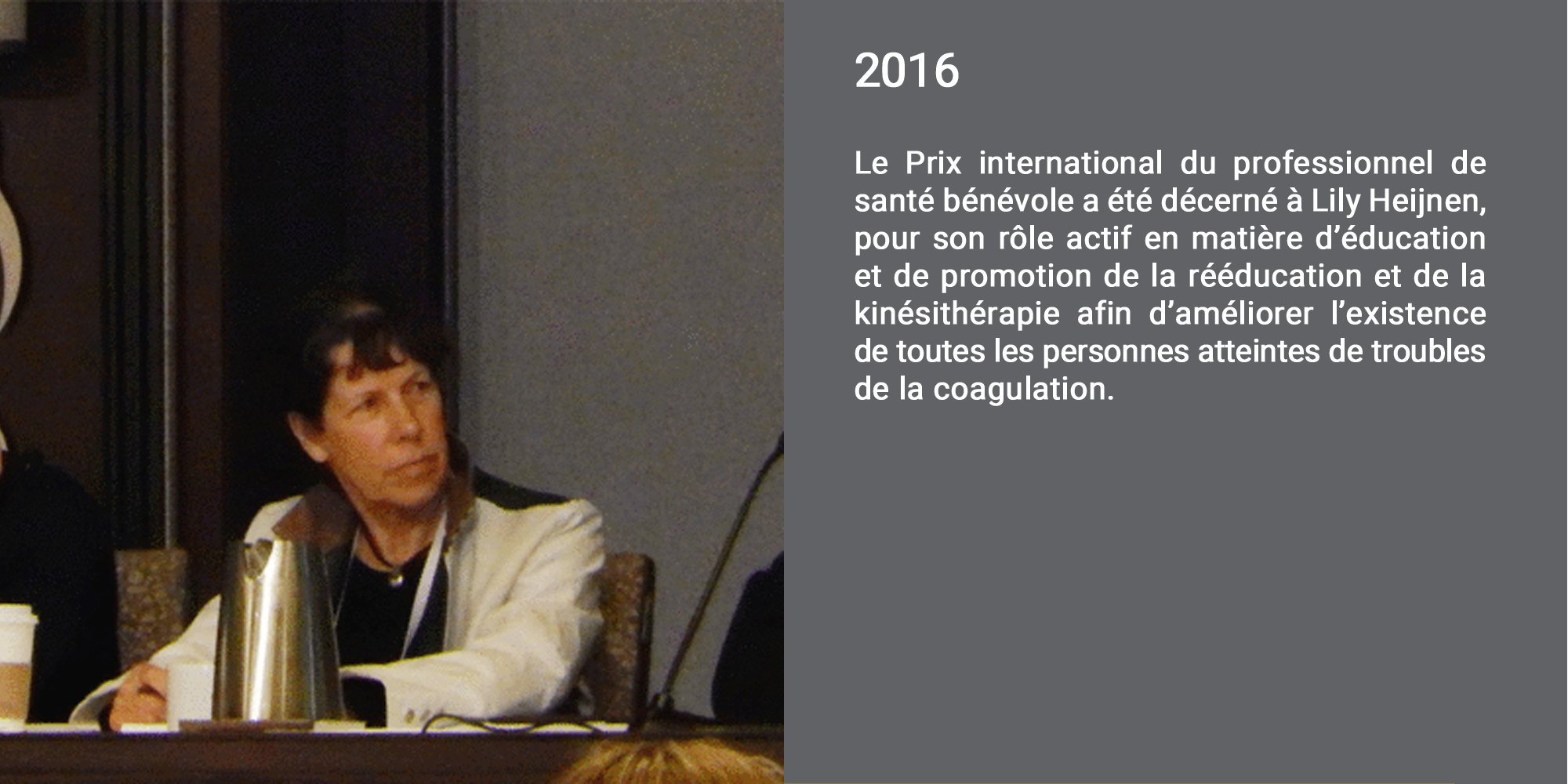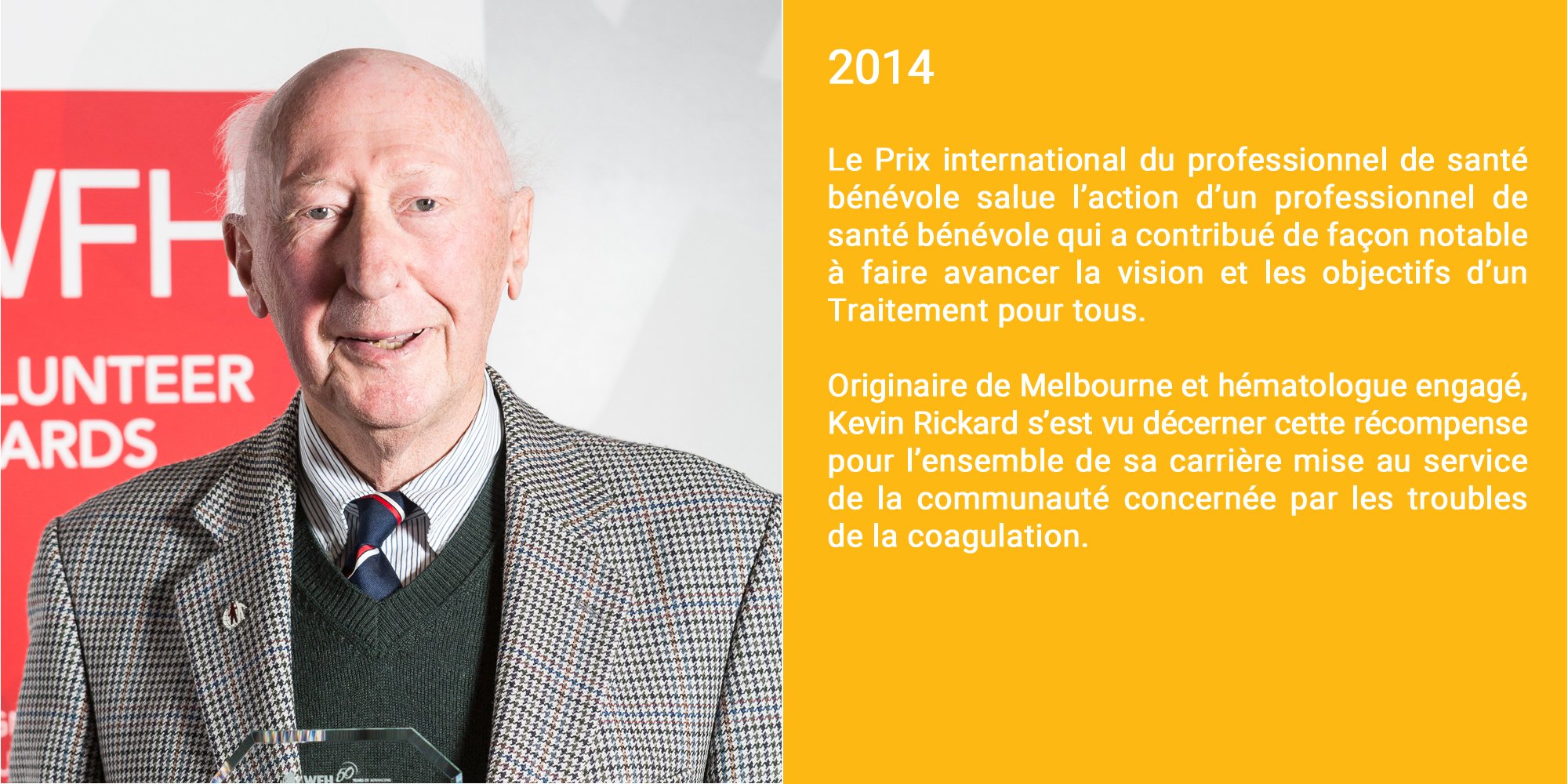| Nom de l’ONM | Société kirghize de l’hémophilie – Communauté des handicapés et hémophiles de la République du Kirghizistan |
| Localisation | Bishkek, Kirghizistan |
| Date de fondation | 2007 |
| Nombre de personnes atteintes d’un trouble de la coagulation aidées | 420 |
| Site internet* | www.hemophilia.kg |
Contexte
La FMh collabore avec la Société kirghize de l’hémophilie – Communauté des handicapés et hémophiles de la République du Kirghizistan depuis plusieurs années et dans le cadre de diverses initiatives. Le Programme de jumelage des groupes de jeunes en cours avec la Federazione delle Associazioni Emofilici – Onlus, l’ONM italienne, implique la jeune génération kirghize de personnes atteintes d’un trouble de la coagulation pour en faire la prochaine génération de leaders, et établit une structure pour la jeunesse au sein de l’ONM afin de veiller à la représentation des perspectives des jeunes. Ce jumelage aide également les participant·es à acquérir des compétences essentielles telles que l’élaboration et la mise en œuvre de projets, la sensibilisation et le plaidoyer.
Le Kirghizistan a aussi fait partie du programme AMP, prédécesseur du programme Parcours d’accès aux soins et au traitement (PACT) jusqu’en 2022. Le pays fait désormais partie d’un programme national de la FMH. Les objectifs de sa phase actuelle sont d’assurer un accès égalitaire au traitement grâce à l’amélioration constante de l’expertise et des connaissances médicales, de sensibiliser le public aux troubles héréditaires de la coagulation, et de maintenir le dialogue avec les parties prenantes clés du pays, via le Comité national de coordination pour l’hémophilie. Ce comité est présidé par le ministre adjoint de la Santé et rassemble les meilleur·es hématologues du pays, le président de l’ONM kirghize, des délégué·e·s du ministère de la Santé, des hématologues de la capitale et des régions, des membres de l’ONM et des personnes atteintes d’un trouble de la coagulation.
Les réponses à nos questions ont été révisées pour apporter plus de clarté.
Quelle est votre vision et votre mission ?
Notre vision, c’est que toutes les personnes atteintes d’un trouble de la coagulation au Kirghizistan, enfants comme adultes, bénéficient d’un accès complet au traitement. Notre mission est d’améliorer la qualité de vie de nos patient·es, notamment en proposant un traitement prophylactique au plus grand nombre, de représenter notre communauté au niveau international, de défendre les droits des patient·es, et d’établir une communication durable avec toutes les parties prenantes.
Quels services votre ONM propose-t-elle à la communauté des troubles de la coagulation ?
Nous proposons de nombreux services, notamment la facilitation de l’approvisionnement en produits thérapeutiques, des formations pour le centre de traitement de l’hémophilie (CTH), et des informations pour les familles des patient·es dont le diagnostic est récent. Nous travaillons aussi avec la FMH sur différents programmes et événements, ainsi qu’avec l’European Haemophilia Consortium (EHC). Enfin, nous sommes activement engagé·es auprès du gouvernement et des décisionnaires politiques pour défendre les droits des patient·es.
Quelles sont les difficultés auxquelles la communauté des troubles de la coagulation est confrontée ?
Les plus grands difficultés de notre communauté sont le diagnostic précis, l’accès au traitement pour l’ensemble des patient·es et le manque d’hématologues dans les zones isolées, où vit une bonne partie de notre communauté. Nous travaillons avec notre responsable régional de la FMH pour les aider au mieux, par exemple en apprenant aux patient·es à faire de l’auto-injection, et en fournissant outils et formation aux divers acteurs et actrices. Nous travaillons au quotidien avec des représentant·es du gouvernement pour militer en faveur de notre communauté. Notre équipe a également commencé récemment à déployer des efforts supplémentaires en faveur des femmes et des filles atteintes d’un trouble de la coagulation et des personnes atteintes de la maladie de Willebrand (MV).
Quelles sont les difficultés auxquelles vous êtes confronté·es au sein de votre ONM ?
Chaque jour, nous faisons face à de nombreux problèmes et défis. Par exemple, il y a des malentendus entre les patient·es ou les membres, et des problèmes d’approvisionnement en facteur. Bien que nous recevions des dons de la part du Programme d’aide humanitaire, nous connaissons encore des pénuries, et beaucoup de patient·es ne sont traité·es qu’à la demande. Nous avons tenté de remédier à ces difficultés en négociant et en communiquant avec les responsables politiques. Nous nous efforçons d’avoir un lien de qualité avec eux pour trouver des solutions grâce à une communication constructive.
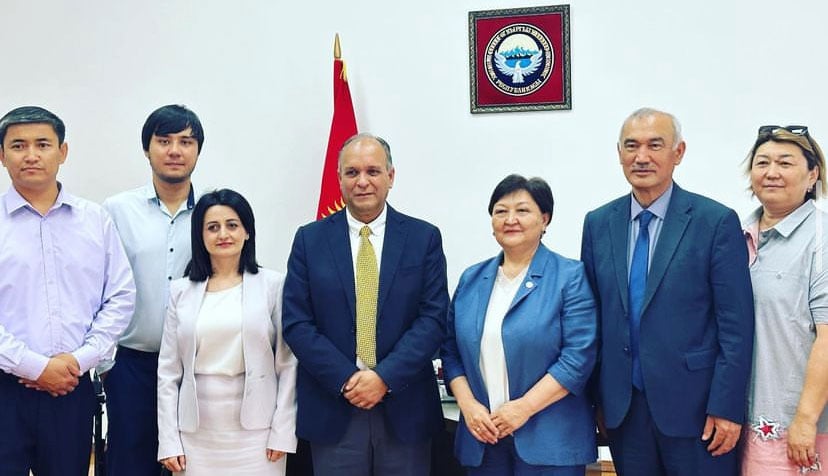
Réunion des responsables de la Société kirghize de l’hémophilie, du président de la FMH Cesar Garrido, et du chef du Département kirghize de pharmacie
Notre réunion avec les responsables de la Société kirghize de l’hémophilie et le chef du Département kirghize de pharmacie a été l’occasion pour la FMH de prouver son engagement au Kirghizistan, aujourd’hui et sur le long terme. Notre but est de collaborer avec les diverses parties prenantes du pays jusqu’à ce que les soins durables et autonomes soient une réalité pour la communauté kirghize des troubles de la coagulation.
—Cesar Garrido, président de la FMH
Comment décririez-vous votre expérience de travail avec la FMH ?
Ces dernières années, nous avons vu beaucoup de changements au sein de la communauté kirghize des troubles de la coagulation, en particulier l’augmentation du nombre de produits thérapeutiques, et cela vient de notre travail avec la FMH. Nous avons commencé à mieux défendre nos droits auprès du gouvernement, nous avons pu mettre en place de nombreux projets, et notre niveau de communication avec les médecins, les responsables gouvernementaux, les patient·es et les autres communautés médicales s’est beaucoup amélioré. La FMH nous a aussi permis de former notre section jeunesse pour préparer la prochaine génération de dirigeant·es de la Société kirghize de l’hémophilie. Nous avons également pu soutenir nos patient·es en matière de santé mentale.
Le Programme d’aide humanitaire nous a été d’une grande aide. Grâce aux produits non substitutifs, beaucoup d’enfants ont accès à une prophylaxie à fable dose. Ces dons ont aussi permis à nos médecins de proposer des remplacements articulaires et d’autres interventions.
Dans le cadre de votre travail de plaidoyer, avez-vous tenté de collaborer avec les autorités pour changer les politiques en lien avec les troubles de la coagulation ?
Nous avons réussi à convaincre le gouvernement d’augmenter son budget pour l’approvisionnement en produits thérapeutiques, grâce à l’aide de notre responsable régional. Nous avons rencontré les responsables politiques et utilisé les données du Registre mondial des troubles de la coagulation (RTMC) de la FMH ainsi que du groupe d’étude « Patient-Reported Outcomes Burdens and Experiences (PROBE) », afin d’étayer notre demande d’un meilleur soutien à notre communauté.
Quelle a été votre plus belle réussite l’an dernier ?
Nous avons convaincu le gouvernement d’augmenter son budget pour l’approvisionnement par rapport à l’année précédente : il est passé de seulement 30 millions de soms à 150 millions de soms. Nous y sommes parvenu·es grâce à de nombreuses réunions avec les responsables gouvernementaux et à notre collaboration avec d’autres acteurs. La leçon que nous en tirons est qu’il est nécessaire d’anticiper certains problèmes et d’être capables de s’adapter rapidement lorsqu’ils adviennent.
Y a-t-il un·e bénévole ou un·e employé·e de votre association que vous souhaitez mettre en avant ?
Nos jeunes membres font preuve d’un fort engagement actuellement, notamment Kudainazarov Arstanbek et Nurbek Uulu Syimykm, qui ont reçu une formation dans le cadre du jumelage avec l’Italie et via l’atelier de leadership des jeunes de l’EHC. Des membres du conseil d’administration sont également très actifs et actives dans nos initiatives de plaidoyer et font leur maximum en tant que bénévoles.
Souhaitez-vous partager l’histoire d’une personne atteinte d’un trouble de la coagulation qui a bénéficié de votre collaboration avec la FMH ?
Voici l’histoire de l’un de nos membres :
Mon père souffre d’hémophilie. Il a passé toute son enfance alité ou à l’hôpital. Quand j’étais petit, je ne comprenais pas ce qu’il avait, mais je l’aidais comme je pouvais. À cette époque, je ne me rendais pas compte de la douleur et des difficultés auxquelles était confronté mon père. Lorsqu’il était plus jeune, il devait recevoir des injections de plasma en cas de saignement, ce qui était très dangereux. Il n’avait pas le choix.
Heureusement, grâce à des améliorations dans le niveau de soins ici au Kirghizistan, il a pu avoir un accès plus régulier à du facteur, et plus tard, a pu bénéficier de plusieurs opérations du genou. Aujourd’hui, il est capable de marcher. Il surveille constamment sa santé, mais oublie parfois de prendre son facteur, je dois donc le lui rappeler.
C’est cette expérience qui m’a poussé à travailler avec la section jeunesse de la Société kirghize de l’hémophilie. La situation est encore difficile, mais c’est mieux qu’avant, et j’en suis reconnaissant.
—Anonyme
Pour en savoir plus sur le rôle que jouent grâce à leur collaboration la FMH et les ONM dans les communautés locales des troubles de la coagulation, nous vous invitons à lire notre article « Les organisations nationales membres, au cœur de la FMH » ici.
Pour lire d’autres articles de cette série, cliquez sur l’un des liens ci-dessous.
| ONM | Article |
| Federación de Hemofilia de la República Mexicana (Mexique) | Cliquez ici |
| Asociación Costarricense de Hemofilia (Costa Rica) | Cliquez ici |
| Haemophilia Association of Mauritius | Cliquez ici |
| Syrian Hemophilia Society | Cliquez ici |
| Réseau national japonais de l’hémophilie (Japon) | Cliquez ici |
| Hemophilia Society of Malaysia (HSM) | Cliquez ici |
| Association tunisienne de l’hémophilie (ATH). | Cliquez ici |
*Avertissement : ceci est un site externe et son contenu n’a pas été développé par la FMH, ni ne fait l’objet d’une quelconque validation par celle-ci.

